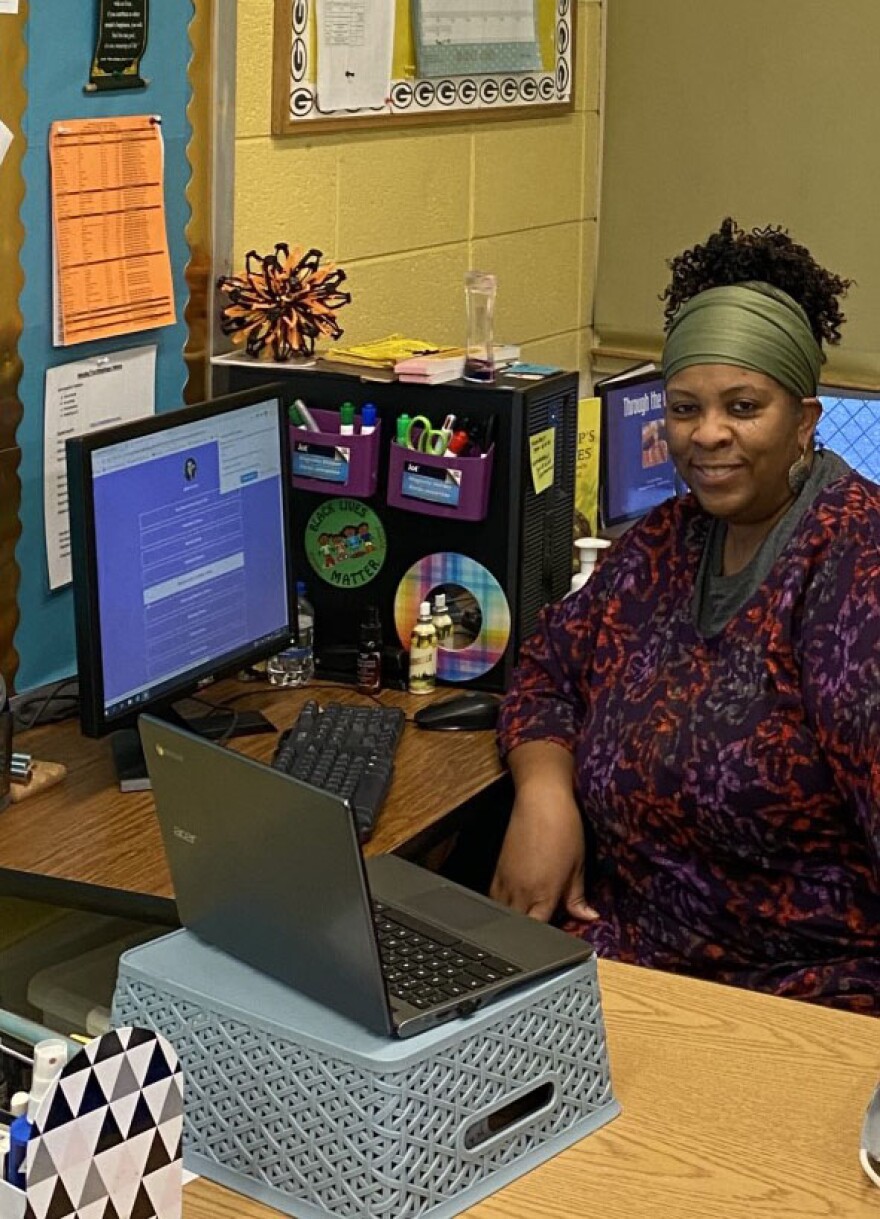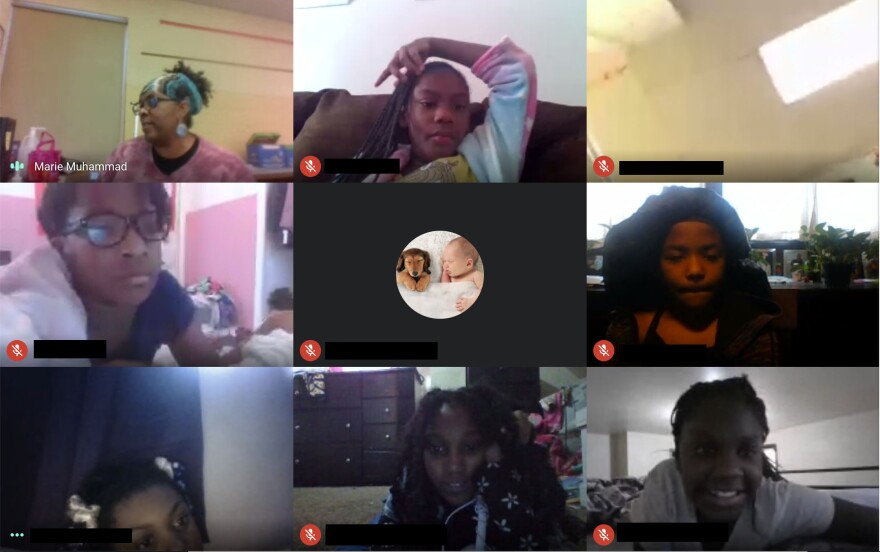This school year, many districts decided to utilize virtual education in an effort to protect staff and students from the coronavirus. Milwaukee Public Schools is one of them.
As part of a series about how teachers are adapting to this new education format, WUWM’s Emily Files visited an MPS virtual classroom.

“Welcome you back,” Marie Muhammad says as students appear in her Google Classroom one recent morning. “I love your faces. Thank you everybody who is here. Make sure you guys have notebook and pencil and paper.”
Muhammad is a longtime MPS teacher who is in her first year at Hawthorne Elementary. She says it took a little while for her fourth and fifth graders to warm up to her over the computer screen.
“When I first started they were so quiet,” Muhammad says. “And plus me being new here, they were like, ‘Who is this lady?’ But then as I start opening up and telling them about me, they start buying in. I just keep it in front of them that wow, you guys are really special, you’re in a pandemic and you’re studying, you’re in school.”
Muhammad begins a recent fourth grade English class with a game. She tells students to create nicknames based on how they’re feeling plus the last food they ate.
“Let’s kick this off with J’Quon, J’Quon how are you feeling this morning?”
“Happy,” the student replies.
“And what was the last thing you ate this morning?” Muhammad asks.
“Cinnamon Toast Crunch,” says J’Quon.
“So your new nickname is Happy Cinnamon Toast Crunch,” Muhammad laughs.
This game is one way for Muhammad to gauge how students are doing emotionally — something she tries to do often in the virtual setting.
Another student, Joseph, says he feels bad. He gets the nickname “Bad Breakfast Sandwich.”
“Hopefully we can turn that into a Good Breakfast Sandwich by the end of the day,” Muhammad says.
Joseph is one of the students Muhammad pays special attention to. He joins the virtual classes from daycare, and recently has been having a difficult time, according to Muhammad.
“Just think about that, he’s in a daycare trying to learn,” Muhammad says. “There are so many distractions around him that I commend him and try to keep him engaged.”
Muhammad asks Joseph to be her helper by telling her when new students join the Google Meeting, and she calls on him throughout the class period.

During a lesson about distinguishing facts from opinions, just one of the six students in Muhammad’s virtual classroom consistently participates without being cajoled. Others keep themselves muted, some with their cameras on, and others with their cameras off.
“There are some opinions up in there,” Muhammad says after reading a passage about chocolate. “So does anyone see those opinions that I’m looking at?”
“That all people like chocolate, that’s not true cause some people might not like it,” says J’Quon, the student participating the most today.
As a former special education teacher, Muhammad says it’s hard to not be able to walk around a classroom and help students one-on-one.
“I think the differentiating piece has been the most difficult,” Muhammad says. “For the children who struggle with reading, and struggle with not having that proximity, that one-on-one.”
Muhammad is also tasked with trying to make up for the learning students lost last spring, when schools closed unexpectedly, and remote instruction was uneven between schools and classrooms.
“All of the children are not where they’re supposed to be,” she says. “They lost over almost a half a year of instruction.”
Muhammad says virtually teaching students who are already behind has been stressful. But one bright sign is that despite all the barriers, her students are eager to spend time with her, even if it’s through a screen. She started holding virtual lunch hours, and to her surprise, they’re popular.
“We’re going to have another lunch date is that OK with everybody? Who would like another lunch date with me?” she asks, and is met with shouts of “Me! Me!” from the students. "Tia, you bringing the chips?" Muhammad jokes.
As Muhammad tries to close out this 90-minute class, she gets a message in the chat box from Joseph — the student struggling at daycare. He types, “I don’t want to leave.”
Have a question about education you'd like WUWM's Emily Files to dig into? Submit it below.
_






